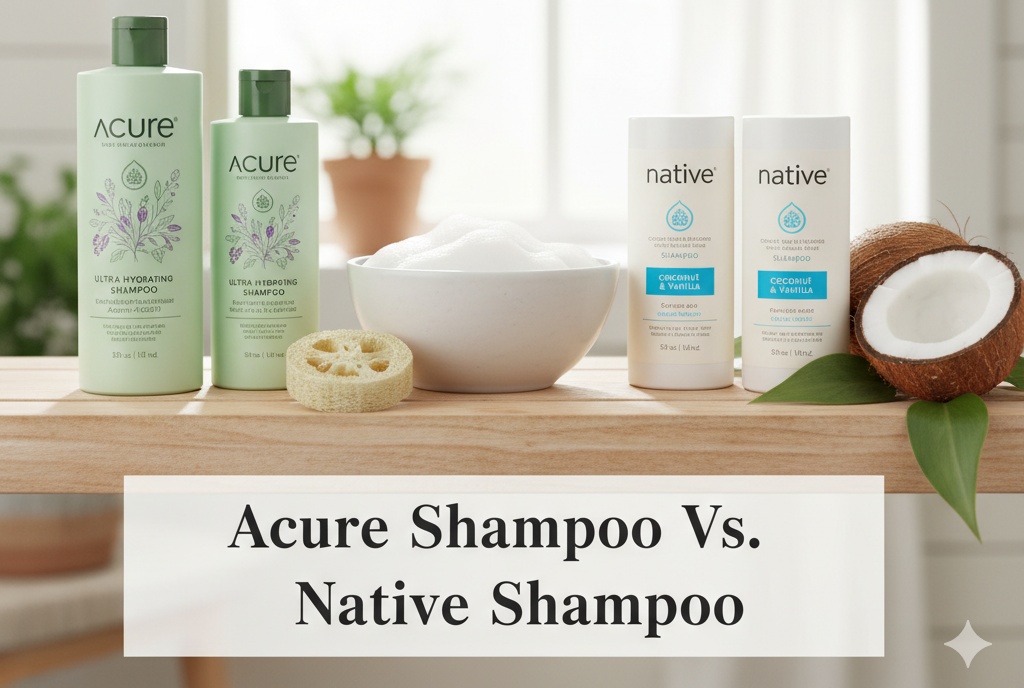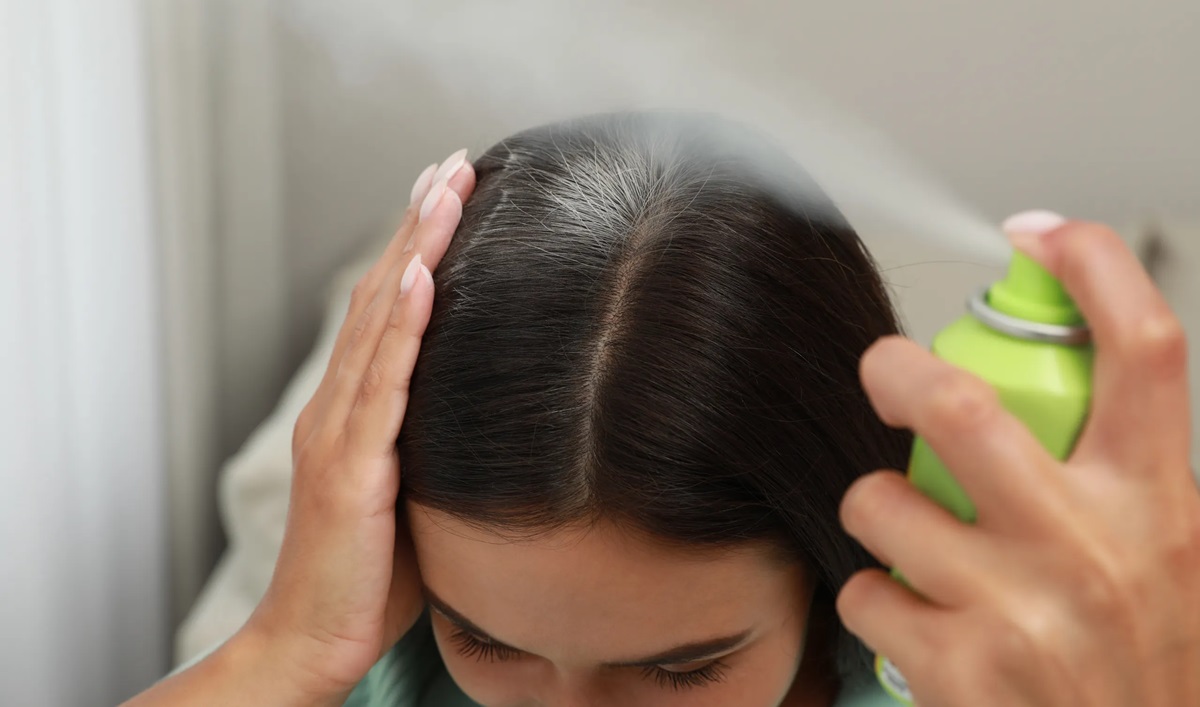Acure Shampoo Vs. Native Shampoo – Which is Better? 2025

Thinking of switching shampoos? You’re not alone. Choosing between Acure and Native can feel tricky because both brands market themselves as “clean,” “natural,” and gentle. In this article, I’ll break down what each brand offers — ingredients, performance, pros and cons — so you can pick the one that suits your hair and scalp. I’ll also cover real user feedback, safety concerns, and my take on which might be a better pick depending on your priorities.
Disclaimer: I’m not a dermatologist or chemist. This article is based on public information, ingredient research, and user reviews as of now. Always patch test a new product, and if you have serious scalp or hair health issues, consult a professional.
Why This Comparison Matters
Imagine your hair is like a garden. The shampoo is your “soil conditioner.” A good one nourishes, doesn’t strip, and helps everything grow. But a mismatch can lead to brittle hair, breakage, or scalp irritation.
Both Acure and Native claim to be gentler alternatives to conventional shampoos. But “gentle” is subjective. What works for one person might flare up another’s scalp. Differences in ingredients, concentrations, and formulation style can make a big difference.
Read More: Hask Dry Shampoo vs Batiste & Expert Review
Brand Overviews
Acure: The Natural Beauty Contender
- Positioning: Acure markets itself as a clean beauty brand, offering vegan formulas, sulfate-free, and paraben-free products.
- Product Lines: They have a variety of shampoos — Ultra Hydrating, Curiously Clarifying, Vivacious Volume, Simply Smoothing, etc.
- Highlight Formula: Their Ultra Hydrating Shampoo uses argan oil and pumpkin seed oil for moisture and claims to be safe for all hair types (vegan, no parabens, no sulfates).
- Clarifying Option: Their Curiously Clarifying line is meant to help remove buildup without harshness.
In short, Acure leans harder into variety and specific target lines (hydration, volume, clarifying, smoothing).
Native: Minimalism Meets Clean Beauty
- Positioning: Native is known for its simple formulations, ingredient transparency, and “free-from” claims (no sulfates, parabens, dyes).
- Ingredient Simplicity: Their shampoos tend to use about 10 ingredients or fewer per formula.
- Scent & Transparency: Native prints on their bottles what each ingredient is and its function. The scent options (coconut & vanilla, almond & shea butter, etc.) are often praised.
- Safety Data: The Environmental Working Group (EWG) rates many of Native’s shampoos as a “moderate hazard” based on ingredient data.
In short, Native keeps things minimal and transparent — a “less is more” philosophy.
Ingredient Comparison
Let’s dig into the nitty-gritty — what’s inside the bottles, and how those ingredients behave.
| Feature | Acure | Native |
|---|---|---|
| Cleansing Agents | Uses surfactants like sodium lauroyl methyl isethionate (milder than standard sulfates) | Uses coconut-derived cleansers like cocamidopropyl betaine and sodium cocoyl glutamate |
| Moisturizers & Oils | Argan oil, pumpkin seed oil, botanical extracts, glycerin | Some formulas include oils or humectants, but generally have less variety (focus is more on cleansing) |
| Fragrance / Essential Oils | Some formulas use botanical scents; not always fragrance-free | Uses fragrance / essential oils in many versions; sensitive scalp versions exist |
| Additives & Extras | Botanical extracts (e.g., chamomile, calendula), conditioning agents | Very minimal extras; polyquaternium-10 shows up in some formulas |
| “Free-From” Claims | Parabens, sulfates, formaldehyde, mineral oil — excluded in many formulas | Parabens, sulfates, dyes — typically excluded |
| Safety / Risk Factors | Generally, milder surfactants, but fragrance or botanical extracts can cause reactions. | Some users blame Native for hair shedding or irritation in scalp irritation.s |
Analysis
- Acure tends to load into more beneficial botanicals, which can give extra benefits — but also extra risk of sensitivity (especially for delicate scalps).
- Native’s minimalist approach lowers the risk of some irritants, but its reliance on fragrance and simpler formulas means it might struggle in cleaning or moisturizing for more demanding hair types.
Performance: Real-Life Use
Ingredients matter, but how do these shampoos actually perform in real life? Let’s see what users say.
Acure
Pros
- Many users report their hair feels soft, hydrated, and healthier over time with Acure’s moisturizing lines.
- The clarifying line seems to handle buildup reasonably without harshness.
- Favorable reviews on sites like Target suggest ~4.5 out of 5 stars for their more popular shampoos.
Cons / Cautions
- Because Acure often uses botanical extracts, some people say they get irritation, especially if their scalp is already reactive.
- The scent may be pronounced in some batches — for instance, one user on Reddit noted: “That shampoo smells like cinnamon almonds.” Reddit
- Some users with very fine hair feel a bit weighed down if they use too much.
Native
Pros
- Many praise the scent (coconut & vanilla is a common favorite) and the transparency of ingredients.
- It generally lathers well and cleans without leaving heavy residue.
- The price point is often considered good value because the bottles are large.
Cons / Cautions
- Several users online report issues with increased shedding or hair loss, especially during transitions or after switching to Native.
- Some reviews say Native’s cleaning can be a bit too mild — occasionally, users mention hair feeling “a bit dry” post-wash if not paired with a strong conditioner.
- There’s chatter about ingredient transparency vs real safety — The Filtery flagged possible fragrance concerns and questioned whether “clean” always means safe.
Which One Is Better — It Depends
“Better” is subjective. It depends heavily on your hair type, scalp sensitivity, and what you prioritize. Below, I break down which brand tends to be better in certain scenarios.
If Your Scalp Is Sensitive or Reactive
Go with Acure cautiously. The botanical extracts pose a risk, but Native’s fragrance + minimal ingredients also might irritate some. Always patch test.
If Your Hair Is Dry, Damaged, or Needs Moisture
Acure has more moisturizing formulas (argan, pumpkin seed oil, and elastics) that give your hair extra nourishment. Native might suffice if your needs are light, but Acure offers more “oomph.”
If You Want a Minimalist, Transparent Formula
Native wins here. Fewer ingredients, simpler formulas, and ingredient explanations make it better for someone trying to keep things clean and lean.
If Budget & Volume Matter
Native’s bottles are large, and the cost per use is usually favorable. Acure sometimes runs promotions, but it can be pricier. Check your local availability.
If You Color Your Hair or Use Lots of Styling Products
Acure’s clarifying line is a good option. Because Native is simpler, it might struggle more with buildup — unless you pair it with a clarifier occasionally.
If You’re Switching from Harsh Shampoos
Switching to a “clean” shampoo often leads to a transition period. Some users of Native report hair shedding or a change during that phase. If possible, transition gradually (mix your old & new over a week).
My Take (and What I’d Try Personally)
If I were you, with average to dry hair, maybe color-treated or styled, and no extreme scalp problems, I might lean toward Acure. The extra botanicals and moisturizers feel like insurance. But if my scalp were ultra sensitive or I hated perfume, I’d try Native first, with cautious testing.
Neither is perfect. Sometimes “clean” is a marketing term more than a guarantee. The key is to test and listen to your hair and scalp.
Frequently Asked Questions
Q: Does Native shampoo cause hair loss?
A: There’s no definitive proof it causes hair loss, but many users report increased shedding, especially during the first few weeks of use. Hair shedding can also be due to scalp adjustment, hormone or health changes, or improper cleansing.
Q: Are both shampoos safe during pregnancy?
A: Neither brand claims “safe for pregnancy” explicitly. Many of their ingredients are generally considered low risk, but botanical extracts can have active compounds. If pregnant, check with your doctor or choose a formulation labeled safe for sensitive use.
Q: Can I switch from one brand to another immediately?
A: You can, but you may go through a transition period where your scalp adjusts. You might want to mix the new shampoo with your old one for a few washes.
Q: Which is better for curly hair?
A: Curly hair often benefits from richer nourishment. Acure’s moisturizing lines might be more helpful. But a lot depends on how light or heavy your curls are and what conditioner you pai with.
Q: Do these brands have environmentally friendly practices?
A: Both brands promote clean beauty and transparency. Acure claims climate neutrality and sustainable practices. Native emphasizes minimalism and transparency. But real environmental impact includes packaging, production, and shipping, which is harder to verify.
Conclusion
In the Acure vs Native face-off, there’s no one-size-fits-all winner. Acure offers richer botanicals and more tailored formulas, which is great for hair that demands more care. Native brings simplicity, minimal ingredients, and a bold “less is more” stance.
If I had to pick, I’d let your hair type and scalp sensitivity decide. Try a small bottle first. Watch how your hair feels over a few weeks. If you notice irritation, dryness, or excess shedding, switch or pause. The best shampoo is the one your hair thanks you for.



